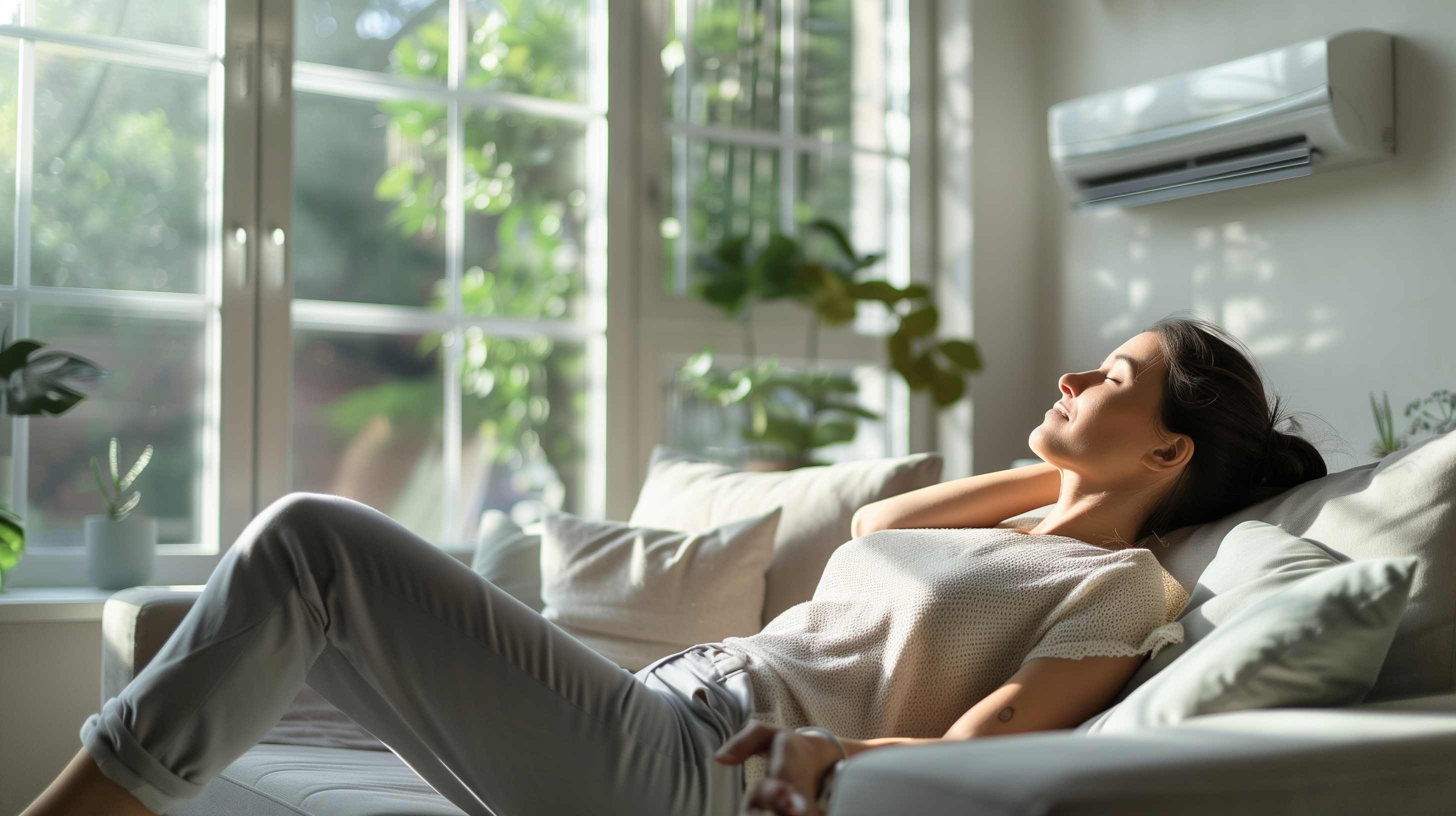Why Cooling Matters for Chronic Illness
Living with a chronic illness means constantly navigating a world that often doesn’t accommodate your needs—especially during the summer months. When the temperatures rise, so do the challenges. For many of us dealing with autoimmune conditions, undergoing dialysis, or managing the side effects of cancer treatment, staying cool isn’t a luxury—it’s a matter of safety, comfort, and health. This article explores how air conditioning and other cooling methods can support our well-being, improve sleep, and protect us from dangerous heat.
How Heat Affects the Chronically Ill
The Danger of Overheating
Excessive heat can be dangerous to anyone, but those of us with chronic conditions are especially vulnerable. High temperatures can trigger symptoms, worsen fatigue, and lead to serious health events such as dehydration or heat stroke. Our bodies often can’t regulate temperature as efficiently, especially when immune systems are overactive or organs are compromised.
Specific Conditions Impacted by Heat
- Autoimmune Diseases: Conditions like lupus and multiple sclerosis can flare under heat exposure, increasing inflammation, fatigue, and pain.
- Cancer: Many undergoing chemotherapy experience heat sensitivity, making it difficult to tolerate even moderately warm days.
- Dialysis: When kidneys are compromised, staying hydrated and avoiding overheating are essential.
- Chronic Fatigue Syndrome & Fibromyalgia: These conditions are often aggravated by even small increases in body temperature.
Health Benefits of Using Air Conditioning
Temperature Regulation
One of the greatest advantages of AC is that it allows us to control our environment when our bodies can’t. Maintaining a stable indoor temperature helps prevent overheating and stress on already taxed systems.
Reduction in Inflammation and Fatigue
Cooler indoor air can reduce muscle and joint inflammation and may ease fatigue by lowering overall body strain. For many of us, this relief is immediate and noticeable.
Improved Breathing and Air Quality
Air conditioning can also act as a filter, removing allergens and particulates from the air. This is especially helpful for those of us who are immunocompromised or dealing with respiratory side effects from medication or illness.
Protection from Dehydration
By reducing sweating and the need to constantly drink fluids, air conditioning supports hydration—crucial for those on dialysis or taking medications that affect fluid balance.
Sleeping with Air Conditioning: Why It Matters
Better Rest for Better Healing
Quality sleep is foundational to healing and symptom management. Chronic illness often disrupts rest through night sweats, pain, or discomfort. A cool environment helps signal to our bodies that it’s time to wind down, allowing for more restful, restorative sleep.
Ideal Sleeping Temperature
Experts recommend sleeping in a room that’s between 60°F and 67°F. This range helps our bodies naturally regulate their internal temperature and promotes deeper sleep.
AC Sleep Tips:
- Use a thermostat to lower the temperature a couple of degrees at night.
- Combine your AC with a ceiling or standing fan for better airflow.
- Choose bedding made of lightweight, breathable fabrics that wick moisture away.
When Is It Too Hot to Be Outside?
Dangerous Temperature Thresholds
According to public health guidelines, temperatures above 90°F (32°C) pose significant risks. For those of us with chronic illnesses, even 85°F (29°C)—especially when humidity is high—can become dangerous. It's important to listen to your body and prioritize staying indoors when the heat index climbs.
Warning Signs of Heat Illness:
- Headache, dizziness, or nausea
- A rapid or irregular heartbeat
- Heavy sweating or, conversely, no sweating at all
- Confusion, fatigue, or muscle cramps
Affordable Ways to Stay Cool at Home
With Air Conditioning:
- Use Zone Cooling: Concentrate your cooling efforts on the bedroom or living area rather than the entire home.
- Improve Efficiency: Use blackout curtains, weather stripping, and shaded windows to help keep your space cool and reduce energy costs.
Without Air Conditioning:
- Use a fan with a bowl of ice placed in front to blow cooler air.
- Take short, cool showers or soak your feet in cold water.
- Sleep with cooling gel mats or breathable sheets.
- Limit oven use and opt for stovetop or cold meals.
Top Products to Help You Stay Cool
Fans
- Oscillating tower fan
- Compact personal desk fan
Ice-Based Solutions
- Wearable cooling neck wraps
- Reusable gel ice packs for neck, wrists, and back
Portable Cooling Units
- Portable air conditioner for single-room cooling
- Window-mounted AC unit for small apartments
Bedroom Essentials
- Cooling sleep pad or mattress topper
- Moisture-wicking, breathable sheets
- Gel-infused cooling pillows
Final Thoughts: Cooling Is Care
When you live with a chronic illness, every bit of comfort matters. Air conditioning can help us feel safer, sleep more deeply, and prevent the spirals that heat often triggers. Even if central AC isn’t an option, there are affordable tools and techniques that can make a real difference. Keeping our homes cool is more than a comfort—it’s an act of care and preservation.
FAQs
1. What’s the best room temperature for someone with chronic illness?
A temperature between 65–72°F is ideal for most of us living with chronic conditions.
2. Are portable air conditioners effective in small apartments?
Yes, especially when combined with light-blocking curtains and room insulation techniques.
3. How can I cool my home during a power outage?
Use battery-powered fans, stay in shaded areas, and apply wet cloths to pulse points. Staying hydrated is key.
4. Is dry air from AC harmful to autoimmune patients?
It can be. Pair your AC with a humidifier to prevent dry air symptoms like nosebleeds or sinus irritation.
5. Can AC reduce cancer treatment side effects?
Yes. By keeping you cool and reducing fatigue, AC supports your body during treatment and recovery.




Freedom to Live Full: Adaptive Clothing Provides Independence for All
Summer Wellness Reset: 7 Science-Backed Habits to Reboot Your Health in August